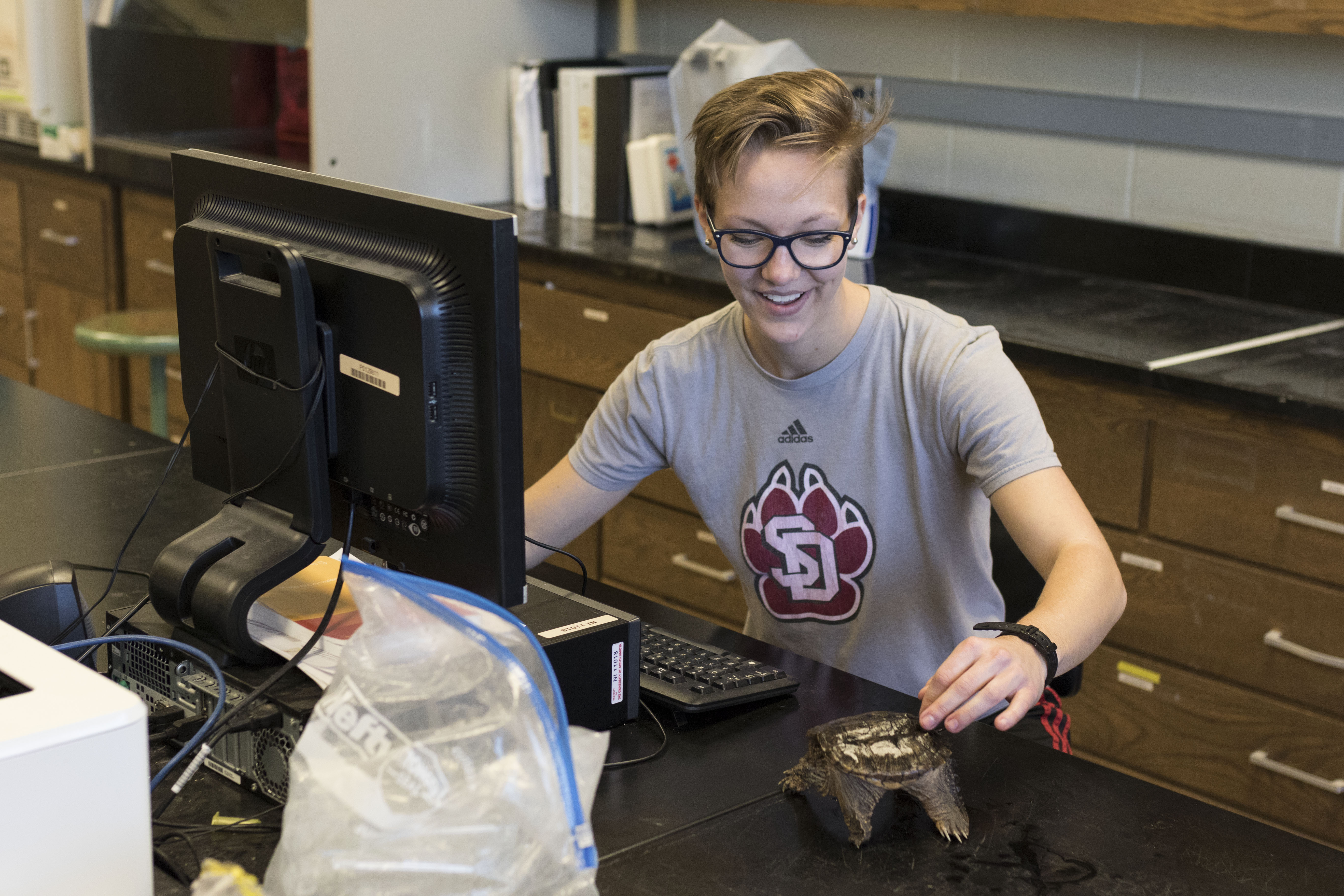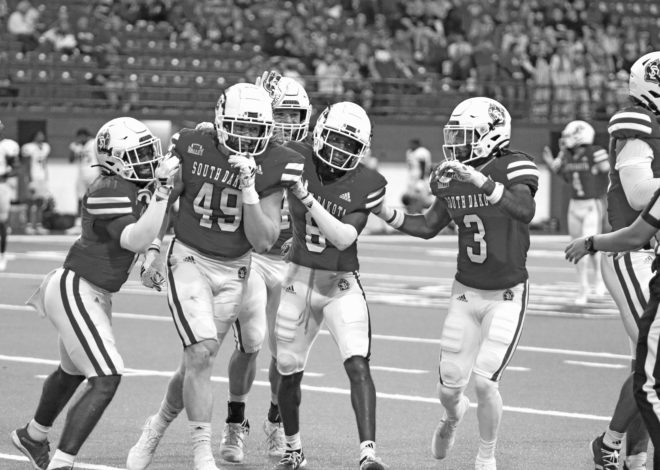
Maddie Butterfield excels on the field and in the classroom
From honors thesis research with turtles, to fitness testing and conversations on mental disorder advocacy, junior medical biology major and women’s soccer player Maddie Butterfield has made her mark at USD.
As an athlete who is a member of the Honors program, who’s been named to the Summit League Honor Roll and listed on the Summit League’s Commissioner’s List of Academic Excellence, Butterfield’s coach and teammates said her dedication is evident.
Head coach Michael Thomas said Butterfield stood out from the minute he started working with the team.
“I’m obviously new to the situation here,” he said. “Maddie was somebody that stood out as somebody who works hard immediately. (She) is somebody who as a coach you come in and start doing fitness tests and she was one of the first people on the team to put in that work and pass those fitness tests.”
Butterfield’s ability to go above and beyond to inspire her teammates was another quality Thomas noted.
“The thing that just amazes me about her is with the standards she set for herself on the field and the standard she set for herself in the classroom, that she always has time to help other people still,” he said. “She very much is one of the team moms of the team.”
Sydney Wilson, Butterfield’s teammate, said that being there for teammates is a big part of the team culture.
“We always joke about how if someone is dating someone on the team, that they have 22 other girlfriends, or if somebody’s significant other breaks up with them or something, they have 22 other girls willing to throw hands if we need to,” she said.
Butterfield said the whole team relies on each other.
“We go to them as much as they come to us,” she said. “It’s a family and I think it goes if anyone has an issue you have 23 girls about to fight for you or are willing to listen to you.”
Balancing school and soccer
Thomas said Butterfield puts just as much time into academics as she does into her team and athletics.
“The way she goes about time management is to a point where she isn’t asking for this exception or this exception with the things she does academically,” he said. “She would be well within her rights to do so. But she is always ready to show up and do her work on the field and she knows she’s going to have to do work after practice and before practice to achieve the goals that she has set for herself.”
Butterfield said a large part of the reason she chose USD was because they would allow her to pursue a degree in medical biology and participate in athletics.
“The fact that it is a smaller university allows the coordination between professors and athletics to be able to accomplish both,” she said. “Because in a lot of bigger programs, they don’t allow you to be any science major if you are an athlete simply because of the time demands. So the fact that I was able to do both was a really big draw in, because usually that is not allowed.”
The Honors program has been flexible in working with Butterfield’s busy schedule, which has helped her manage her time, she said.
“I think just generally the course requirements of the Honors program keeps athletes from being in it. But from there, between the medical biology major and the labs that are associated with it, it kind of makes it timing wise very difficult to fit in other things.” she said. “Everyone is usually super relaxed and there is just kind of a synergy between the Honors program and athletics.”
Raising awareness
In addition to being a busy student-athlete, Butterfield also lives with obsessive compulsive disorder (OCD). Her tick is pulling out her hair, which inspired a head tattoo.
“That has been something that is just kind of an added stress,” she said. “So if things get stressful in an athletic setting or in an academic setting, that gets progressively worse. So, it is something that I have to manage pretty closely to make sure that I am keeping athletically okay, academically okay and mentally and emotionally okay as well.”
While she said managing her OCD gets stressful at times, Butterfield said she’s able to use her platform to start a conversation around mental disorders.
“It’s kind of being able to use the platform that I have as a member of athletics as well as being a prominent member in the science community here at USD,” she said. “To kind of promote awareness of OCD specifically, but also mental disorders, that even though I may have a mental disorder, you can still live a successful and productive life.”
Butterfield said talking about stress and mental disorders in the science and honors communities is important.
“It is particularly prevalent for students in science majors and honors students because there is this demand to be perfect and demand to be successful, and so that can weigh in, not only if you have OCD, but if you have anxiety or depression, these things can be exponentially more noticeable,” she said.
While there hasn’t always been an open discussion surrounding mental disorders, Butterfield said she thinks it’s becoming an easier topic to discuss and hopes that students feel they can have open conversations.
“I think the conversation is beginning and it is progressing in a way that is really healthy because it’s opening the dialogue,” she said. “Students no longer feel that they have to act okay if they aren’t okay, and that they can seek help if they need it, and that it is a really accepting environment once they do seek out that help.”

